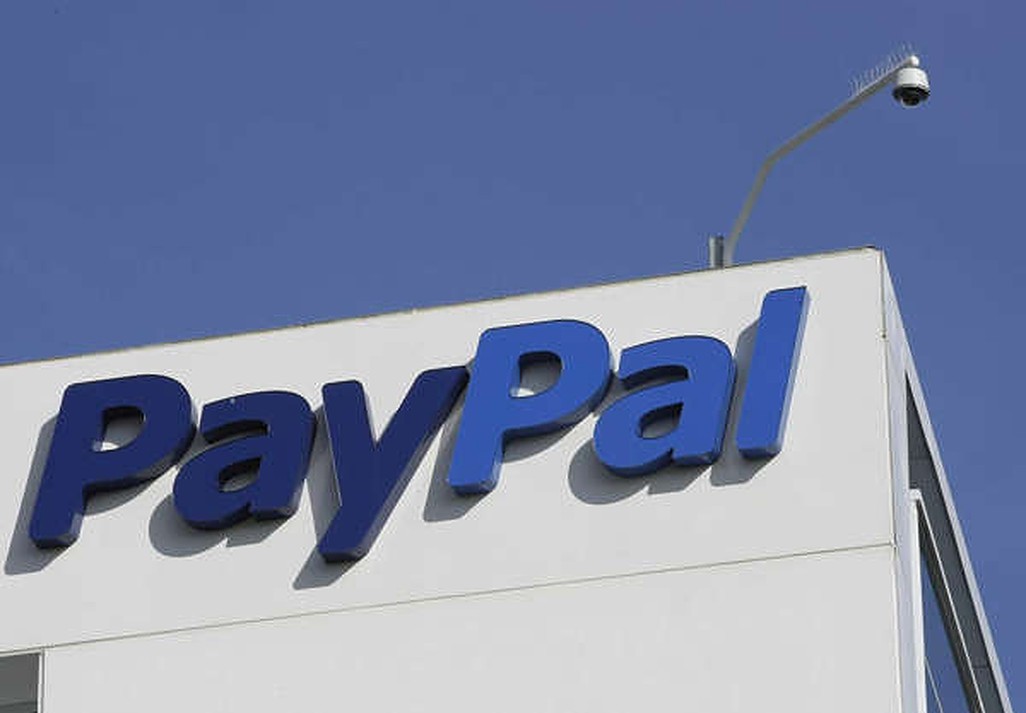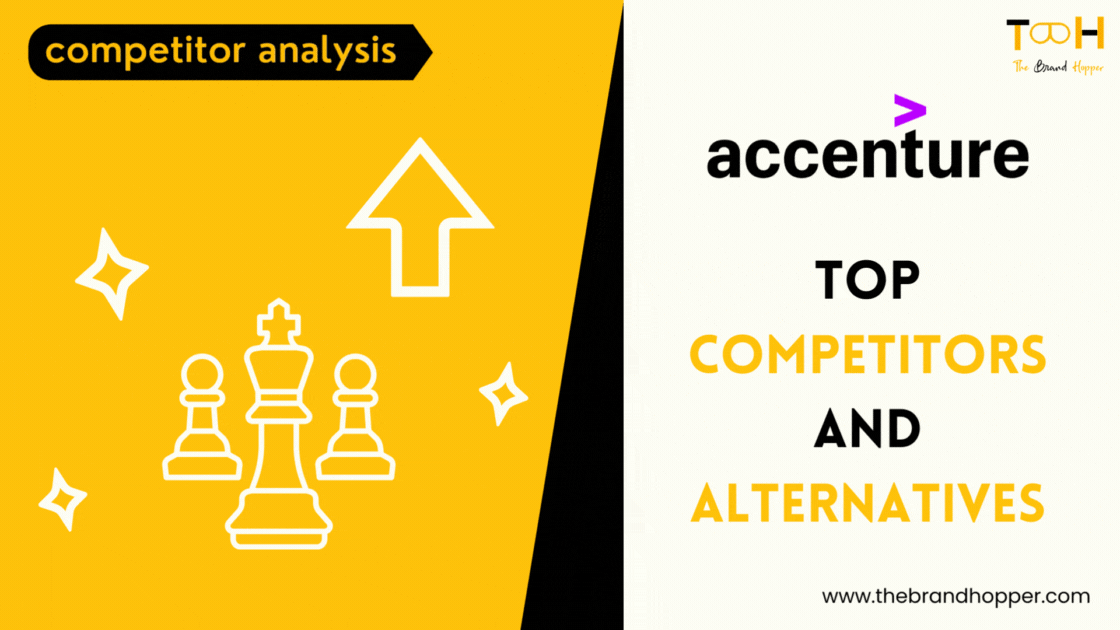In an era where traditional modes of commerce were rapidly merging with the expanding realms of the internet, emerged a groundbreaking platform that would redefine the way we exchange money, conduct business, and engage in financial transactions. PayPal, a name synonymous with secure and convenient online payments, has etched its mark as a global leader in the digital payment ecosystem.
PayPal is an American multinational financial technology company that operates an online payments system in the majority of countries that support online money transfers, and serves as an electronic alternative to traditional paper methods such as checks and money orders. The company operates as a payment processor for online vendors, auction sites and many other commercial users, for which it charges a fee. PayPal Holdings, Inc. Headquarters in San Jose, California, U.S.
PayPal was founded in 1998 by Max Levchin, Peter Thiel, Luke Nosek, and Elon Musk. The company was originally called Confinity, and it focused on providing digital wallets for PalmPilot users. In 2000, Confinity merged with X.com, an online banking company founded by Elon Musk. The merged company was renamed PayPal.
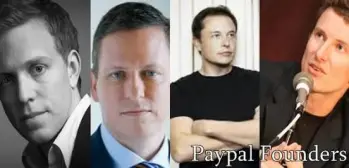
PayPal quickly became one of the most popular online payment methods. In 2002, PayPal went public through an IPO. In 2003, eBay acquired PayPal for $1.5 billion. PayPal remained a wholly owned subsidiary of eBay until 2015, when it was spun off into a separate company.
Today, PayPal is one of the most popular payment methods in the world. It is accepted by millions of businesses around the world, and it has over 429 million active accounts. PayPal offers a variety of features that make it a convenient and secure way to send and receive money online. These features include:
- Buyer protection: PayPal offers buyer protection to ensure that you are covered if you do not receive your item or if it is not as described.
- Seller protection: PayPal offers seller protection to help protect you from fraud.
- Instant payments: PayPal payments are processed instantly, so you can get the items you want right away.
- Global reach: PayPal is accepted by millions of businesses around the world, so you can use it to shop anywhere.
- Convenient and secure: PayPal is a convenient and secure way to pay online. Your financial information is never shared with the merchant, and your payments are protected by PayPal’s fraud protection measures.
In addition to online payments, PayPal also offers a variety of other services, such as:
- PayPal Credit: PayPal Credit is a line of credit that you can use to make online purchases.
- PayPal Cash: PayPal Cash is a prepaid debit card that you can use to make purchases online or in stores.
- PayPal Business: PayPal Business is a suite of tools and services for businesses that use PayPal.
Join us as we unravel the layers of PayPal’s history, dissect its strategic moves, and uncover the impact it has had on shaping the digital payment landscape. PayPal’s journey isn’t just a chronicle of financial technology; it’s a reflection of the human drive to transcend limitations and reshape the world around us.
Success Story of PayPal
PayPal has a narrative grounded in two fundamental principles that also shaped its inception: confidence and longevity.
Throughout its history, PayPal navigated a series of obstacles and dilemmas. From its humble beginnings when founder Max Levchin faced financial uncertainty, to its subsequent dominance in the online banking sector, PayPal’s story is a testament to resilience.
Let’s delve into the chronicle of the company’s evolution, starting from its origins as Confinity.
Transitioning from Security to Financial Software
In 1998, Max Levchin, then a graduate student, invested his last resources to journey from Chicago to Silicon Valley. His objective was to sell his three fledgling startups, his sole assets. Microsoft expressed interest in purchasing these startups for $100,000 – a modest sum yet meaningful.
In a situation of financial strain, residing at a friend’s place and lacking clear professional direction, Max pondered, “What path should I take?”
While awaiting the conclusion of negotiations with Microsoft, he attended lectures at Stanford University. These lectures introduced him to Peter Thiel, a prominent American entrepreneur, political advocate, and philanthropist. Impressed by Thiel’s insights, Max viewed him as an intellectual giant. Inspired, he proposed a business venture to Thiel: developing a library for licensed scheme encryptions.
Thiel embraced this idea – an innovative and original concept. Consequently, he pledged financial support, and they dubbed the project “Field link.”
However, after several weeks, it became apparent that Field link lacked market potential. Instead of abandoning their efforts, Thiel proposed a shift: constructing a company centered around financial transactions.
This marked the emergence of Confinity. Max transitioned from a cryptographically secure project to a website offering comparable security. This website’s software was synchronized with email and the internet, simplifying user-friendly money transfers. The product was rebranded as PayPal – a name that resonates.
Enhancing the Team and Acquiring Initial Customers
During the development of PayPal, Peter and Max recognized the necessity for team reinforcement. Here, Luke Nosek, Max’s college friend and previous startup collaborator, enters the picture. Luke proposed a brilliant concept: incentivizing PayPal’s virality through financial rewards.
What did this entail?
Every sign-up and referral would receive a $10 deposit in their account.
This strategy resonated well with their initial target market: eBay sellers. Despite initially attempting to avoid eBay, it emerged as an optimal choice due to the vast number of sellers seeking improved transaction mechanisms. Several sellers agreed to integrate PayPal ads into their online stores, linking to PayPal’s homepage. With the support of their initial customers, the first version of PayPal went live in 1999.
Significant Transformations
Symbolically, PayPal’s launch coincided with the end of the 20th century, the close of the second millennium, and the conclusion of the dotcom era.
As the world transitioned into the tech-driven 21st century, PayPal spearheaded this transformative leap. However, competition in the online banking sector was fierce, with Elon Musk’s X.com leading the charge. X.com scrutinized PayPal’s actions and even replicated some strategies to gain an upper hand, including offering $20 to each new user.
As rivalry escalated, Peter believed that the first company to pursue an IPO would claim victory. Yet, before this determination could materialize, the two companies united: Confinity merged with X.com, resulting in Elon Musk’s appointment as chairman and Peter as CFO.
Despite Elon’s conviction in the merger’s profitability, tensions within the merged entity persisted. Elon attempted to sideline PayPal in favor of X.com, yet public sentiment clearly favored PayPal. Max orchestrated a coup against Elon Musk, leading to his removal from the executive team, and Peter’s ascension to CEO.
PayPal’s Expansion
By 2000, PayPal’s user base surpassed one million, propelling the rebranding of Confinity to PayPal. In 2002, PayPal went public under the PYPL code, with shares priced at $13 each.
In the same year, Peter recognized the exponential growth in users and sensed the need for a strategic move. They explored potential buyers like Google and Yahoo!, setting the minimum price at $600 million. Both companies suggested PayPal collaborate with eBay, given its primary market alignment. Although the founders initially hesitated, they ultimately pursued an FPO.
Upon this public announcement, eBay issued a stark ultimatum, predicting their own market domination. The founders stood their ground, demanding $1 billion. Eventually, market valuation assessed PayPal at $1.5 billion, the amount eBay conceded when acquiring the company in October 2002.
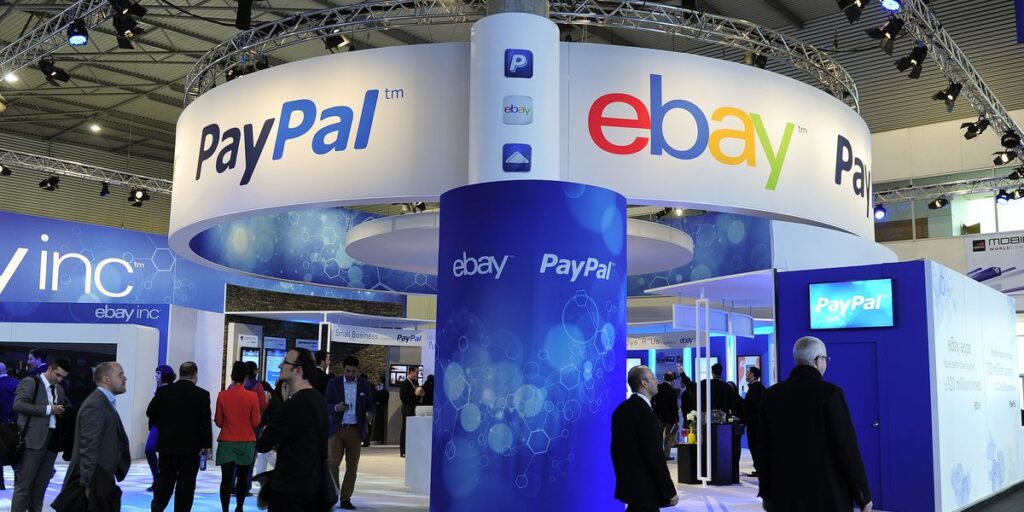
In the wake of this acquisition, PayPal became eBay’s default payment method, contending with eBay’s subsidiary Billpoint, Citibank, c2it, Yahoo’s Pay Direct, and Google Checkout.
By 2005, PayPal was accessible in 55 global markets. Subsequent years saw strategic acquisitions – VeriSign, Bill Me Later, and FraudScience – alongside a partnership with MasterCard, which introduced the PayPal Secure Card service, allowing PayPal payments on incompatible websites.
In 2008, PayPal ventured into mobile payments for iOS devices, driving a significant shift towards mobile commerce. Despite founder departures, PayPal’s growth remained unscathed. In 2010, its user base exceeded 100 million in 190 countries, operating across 25 currencies.
The company expanded into offline transactions in 2011, enabling payments through PayPal in physical stores. Partnering with Discover Card in 2012, users gained access to PayPal payments in over 7 million shops.
Today, PayPal’s enduring legacy is characterized by its ability to adapt, overcome challenges, and cater to evolving user demands. With annual revenues exceeding $17 billion, the company continues to exemplify the significance of timing, talent, and knowledge in the tech and financial landscape.
PayPal Mafia: A Legacy of Innovation, Disruption, and Entrepreneurial Triumph
In the annals of Silicon Valley’s storied history, few phenomena have captured the essence of innovation, entrepreneurship, and trailblazing success quite like the “PayPal Mafia.” This term, coined to describe the remarkable post-PayPal careers of a group of individuals who played pivotal roles in PayPal’s formative years, embodies a legacy that continues to shape industries and redefine the tech landscape.
Origin and Genesis:
The foundation of the PayPal Mafia was laid during the late 1990s, as PayPal emerged from its predecessor, Confinity. This band of visionaries and disruptors was united not only by their involvement in PayPal but also by their shared determination to push the boundaries of what technology could achieve. These individuals were responsible for crafting and implementing the groundbreaking strategies that transformed PayPal from a mere concept into a global powerhouse of digital transactions.
The Cast of Characters:
The PayPal Mafia boasts an eclectic mix of talents, each bringing their unique skills and perspectives to the table. Among its prominent members are:
- Peter Thiel: One of PayPal’s co-founders, Thiel is not only an entrepreneur but also a prominent venture capitalist and thought leader. His ventures span from co-founding Palantir Technologies to being an early investor in Facebook.
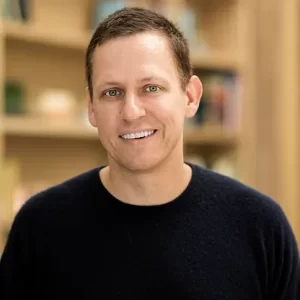
- Elon Musk: Renowned for his role in co-founding PayPal, Musk’s subsequent ventures include Tesla, SpaceX, and Neuralink. His groundbreaking ideas have redefined space exploration, electric vehicles, and renewable energy.
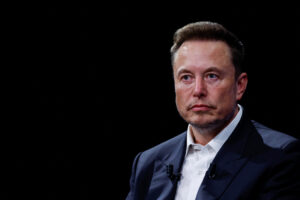
- Reid Hoffman: A key player in PayPal’s early days, Hoffman went on to co-found LinkedIn, a platform that revolutionized professional networking and recruitment.

- Max Levchin: Co-founder of PayPal and an influential entrepreneur, Levchin’s post-PayPal endeavors include launching Affirm, a financial technology company focused on simplifying lending.
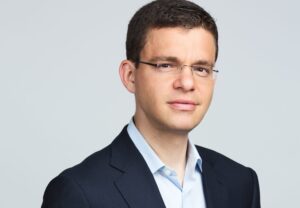
- David Sacks: Joining PayPal as COO, Sacks went on to create Yammer, a social networking platform for businesses that Microsoft later acquired.
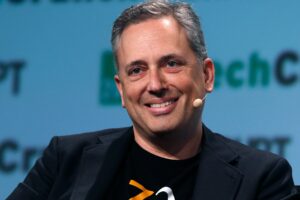
- Steve Chen and Chad Hurley: These PayPal alumni co-founded YouTube, a platform that fundamentally changed how we consume and share video content.

The Resonance of the Mafia:
What sets the PayPal Mafia apart is not just their illustrious careers but the enduring impact they’ve had on shaping industries. The ethos of innovation, risk-taking, and disruption cultivated at PayPal cascaded into the DNA of their subsequent ventures. The lessons learned during their time at PayPal resonated across diverse fields, from e-commerce and social networking to space exploration and sustainable energy solutions.
The Influence on Entrepreneurial Ecosystems:
The PayPal Mafia has catalyzed a new breed of entrepreneurs and leaders who value creative disruption and agile problem-solving. Their success stories have inspired countless individuals to dream big, take calculated risks, and innovate fearlessly. The ripple effect of their influence extends not only to startups but also to established corporations seeking to remain competitive in an ever-evolving landscape.
A Legacy Continues:
The PayPal Mafia’s saga is far from over. As these visionaries continue to explore uncharted territories, their indomitable spirit of innovation lives on. Their stories serve as a testament to the power of collaboration, forward-thinking, and a willingness to challenge the status quo. The PayPal Mafia’s legacy reinforces the notion that the true measure of success isn’t confined to individual achievements but lies in the enduring impact one’s ideas have on the world at large.
Also Read: Behind The Screens : Netflix Success Story Unveiled
To read more content like this, subscribe to our newsletter
